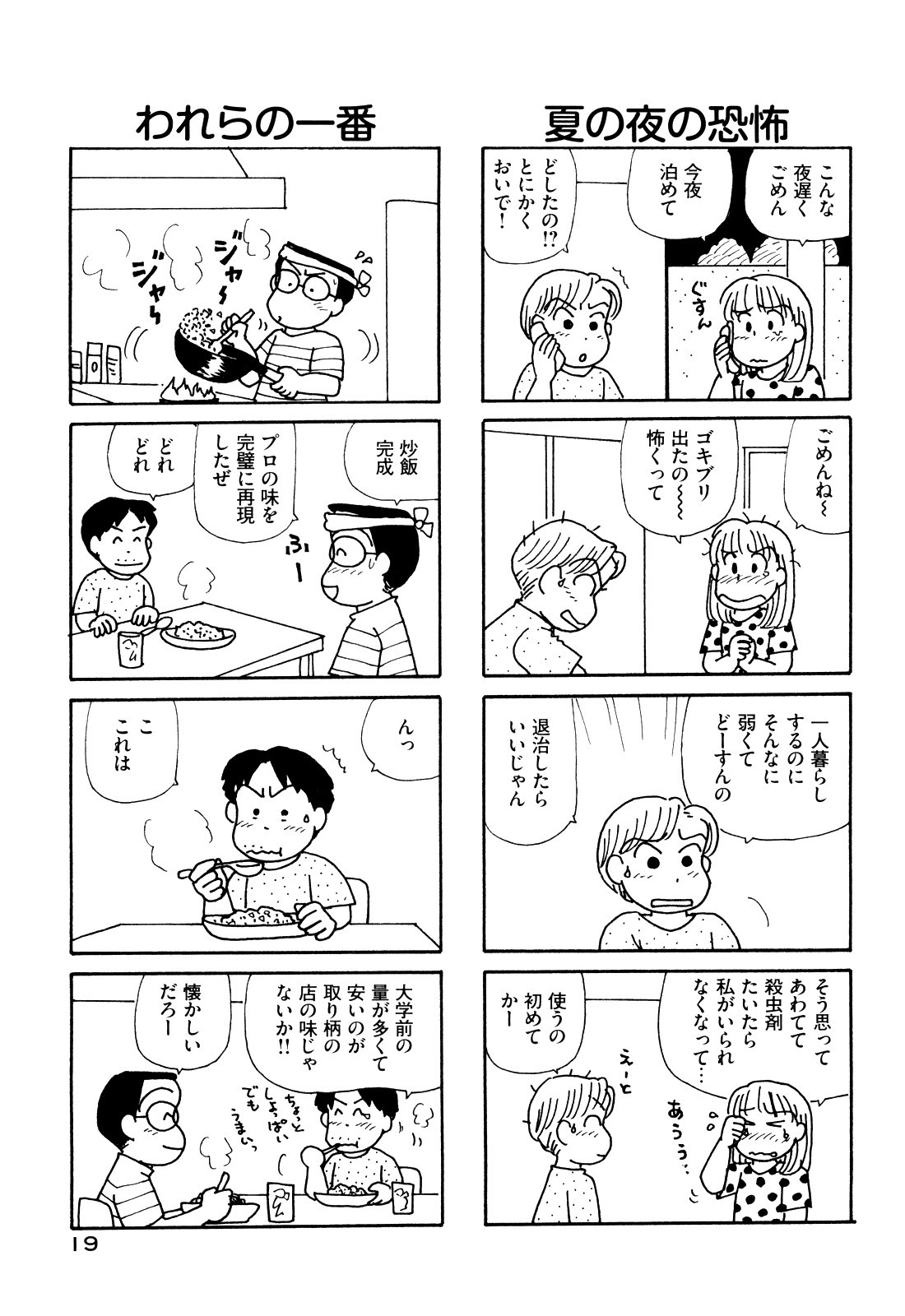I have problem understanding the following sentence from the lower right panel:
そう思{おも}ってあわてて殺虫剤{さっちゅうざい}たいたら私{わたし}がいられなくなって
殺虫剤 is pesticide, but I don't know how to parse たいたら. My bad guess is that it's a conjugation of たく but I can't go further. There is no たく that seems to make sense in this context.
Another question is 私がいられなくなって --- I'm not quite sure how to translate this. "I can't be here"?

